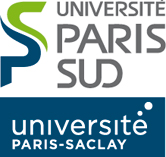Classification from strategic data: a game-theoretic perspective
Time: 14:30 -- Location: LIX
Statistical learning methods developed in the last decades have proved very useful for many applications. However, most algorithms were developed under the assumption that the data is independent from the algorithm. This is no longer true in applications where data is generated or provided by (human) strategic agents. As more and more modern applications indeed learn from data generated by strategic agents, it becomes increasingly crucial to account for the data-generator's incentives in order to design well-performing learning algorithms in practice.
In this talk, we show how game theory can be used to design learning algorithms adapted to strategic data on the example of classification of malicious behavior. In this example, a defender runs a classification algorithm to detect malicious behavior while an attacker chooses his attack strategy to balance the utility of the attack and the probability of being detected. We model explicitly the economic incentives of the learner and of the attacker generating data. Then we obtain analytic results on the Nash equilibrium that show how to optimally perform the classification given the attacker's utility.
Bio: Patrick Loiseau is an Assistant Professor at EURECOM (Sophia-Antipolis, France) since November 2011. He was recently a visiting researcher at UC Berkeley (summer 2012) and at MPI-SWS (summer 2014). He received a Ph.D. in Computer Science (2009) from ENS Lyon and a M.Sc. in Mathematics from UPMC (Paris 6) and Ecole Polytechnique (2010). Patrick Loiseau's research is in the areas of game theory and statistics and their application to security, personal data, and network economics. His main interests are currently in game-theoretic statistical learning for security and economics of personal data; statistical inference in online systems; and resource allocation and pricing for cloud, smart grids and security.


